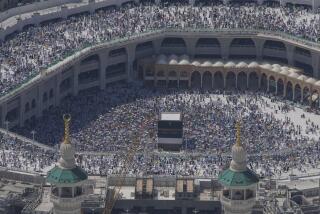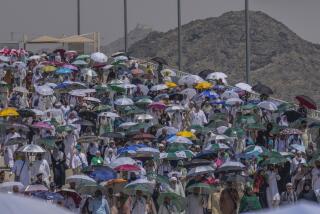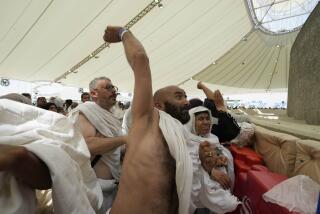Pakistan flies home the injured and bodies of 28 Shiite pilgrims killed in a bus crash in Iran

Pakistan on Friday brought home the bodies of 28 Shiite pilgrims killed in a bus crash in Iran this week while heading to Iraq for a pilgrimage. A Pakistani military aircraft also flew back 23 pilgrims injured in the accident, officials said.
Earlier in the day in Iran, officials handed over the bodies of the crash victims to Pakistani diplomats. Prayer services were held in Iran and later in Pakistan.
Funerals were to take place in the victims’ home districts early Saturday. The pilgrims were from Pakistan’s southern Sindh province, according to Nasir Shah, a provincial government spokesman.
The plane, requested by Pakistani Prime Minister Shehbaz Sharif for the repatriation, landed at the airport in Jacobabad, about 625 miles southwest from the capital, Islamabad. The coffins, covered in Pakistan’s national flag, were handed over to the victims’ relatives for burial.
State-run PTV broadcast the ceremony at the Jacobabad airport, where relatives of the victims cried and hugged one another.
Authorities have not revealed the cause of the crash near the city of Taft, some 310 miles southeast of Tehran.
In a state TV report, Mohammad Ali Malekzadeh, a local Iranian emergency official, blamed the crash on the bus brakes failing and a lack of attention by the driver. A surveillance video aired by state TV showed the bus speeding past a parked car into a dirt lot just before the crash, narrowly missing bystanders.
Iran has one of the world’s worst traffic safety records, with some 17,000 deaths annually. The grave toll is blamed on wide disregard for traffic laws, unsafe vehicles and inadequate emergency services in its vast rural areas.
The pilgrims had been on their way to Iraq’s holy city of Karbala, to commemorate Arbaeen — Arabic for the number 40 — marking the end of the annual 40-day mourning period after the date of the 7th century death of the prophet Muhammad’s grandson, Hussein, a central figure in Shiite Islam.
Hussein died at the hands of the Muslim Umayyad forces in the Battle of Karbala, during the tumultuous first century of Islam’s history.
Ahmed writes for the Associated Press. AP writer Asim Tanveer in Multan, Pakistan, contributed to this report.
More to Read
Sign up for Essential California
The most important California stories and recommendations in your inbox every morning.
You may occasionally receive promotional content from the Los Angeles Times.






